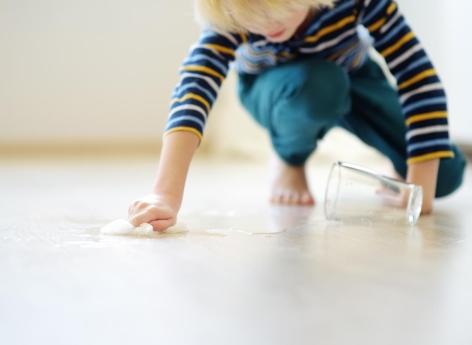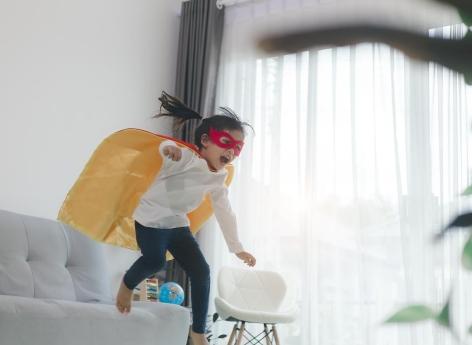The Academy of Sciences is today issuing an opinion advocating prevention and education so that screens become new tools beneficial to children’s development.

Who said the Academies were old, dusty, frozen institutions? The Academy of Sciences, in any case, has taken the measure of the digital revolution that surrounds it. “The omnipresence of screens (televisions, videos, computers, mobile phones and smartphones, digital touch tablets, etc.) is causing profound cultural, cognitive and psychological upheavals”, write the 4 authors of the opinion published today and entitled L ‘ child and screens. No question of condemning the place now taken by these screens in our daily lives, on the contrary, “a crossbreeding between the traditional culture of the book and the most recent culture of the screens is possible, amplifying the virtues of both” .
Listen to Dr Serge Tisseron, psychiatrist and co-author of the opinion of the Academy of Sciences: “The screens certainly potentiate all that human beings have of worst but also what they have of best! “
But for digital tools to find a beneficial place in children’s development, parents and schools have a key role in education and prevention to play. This opinion of the Academy of Sciences is also published jointly with an educational module of the La Main à la Pâte Foundation intended for primary school teachers. The idea is simple: to bring the youngest to a reasoned and self-regulated use of screens by relying on the discovery in class of the functions of the brain brought into play when using a game console or a tablet. “We must abandon this idea of the generation of“ digital natives ”, insists Elena Pasquinelli, researcher in the philosophy of cognitive science and in charge of La main à la Pâte. Being born into this digital bath does not make our children proficient screen users. We ourselves were born into the culture of the book and the written word and this did not spontaneously make us great writers! “.
Education on screens is therefore essential and must be progressive. “The ban is illusory and unnecessary, we can not put children in bubbles without screens”, underlines one of the authors of the opinion of the Academy, the psychologist of development Olivier Houdé. However, before 2 years, “the non-interactive screens (television and DVD) in front of which the baby is passive have no positive effect and can on the contrary have negative effects: weight gain, language delay, concentration deficit …” Touch pads for toddlers, one of the most received gifts for toddlers this Christmas 2012, are not rejected. But on condition that their use by the baby is accompanied by an adult or an older child and that the tablet is only one of the tools of the sensory and motor development of the child, alongside the traditional cubes, rattles and soft toys.
From the age of 3, academics advise against “passive and prolonged exposure of children to television”, instead advocating “the creation of a family video library which replaces poor quality programs while avoiding publicity”. In addition, the child should be invited to talk about what he has seen on television to develop his ability to tell.
Listen to Dr Serge Tisseron, psychiatrist and co-author of the opinion of the Academy of Sciences: “Telling the film makes it possible to move from a form of spatial intelligence to a more narrative intelligence”
On the other hand, the video game, on console or computer must remain very occasional before 6 years. “Between 2 and 6 years old, the child plays by himself pretending. It is in this way and not through video games that he becomes aware of what is for false and for real, ”explains Olivier Houdé.
For the Academy of Sciences, primary school is the best place to engage in systematic education on screens. Children between 6 and 12 years old are best able to understand what digital technology is and to learn to reason about how they use it. The prevention of abuses that can occur in adolescence must begin in children.
It is indeed in adolescence that this “self-regulated use of screens” is most difficult to implement in families. Here again, the Academy’s recommendations are intended to be nuanced. If “establishing clear rules on internet and gaming times is essential”, talking with your teenager about what he sees and does on screens through video games and social networks is a source of “mutual discovery. between generations ”and the opportunity to help them develop their critical sense and their capacities for synthesis and perspective.
Listen to Dr Serge Tisseron, psychiatrist and co-author of the opinion of the Academy of Sciences: “Taking an interest in what a child is doing in front of his screen makes it possible to distinguish more quickly his possible discomfort. “
Academicians therefore want to be lucid and rather reassuring in the face of this digital revolution on the move. “Delivered alone to the screens, the child will drift in solitude, while accompanied, he will make new uses of it that his parents’ generation does not imagine”, conclude the Academy as if to convince parents who are still nostalgic for their childhood away from the Wii and Facebook.
To find out more: The work The child and the screens, An opinion of the Académie des Siences written by JF Bach, O. Houdé, P.Léna and S. Tisseron is published by Editions Le Pommier and available in bookstores.
.














